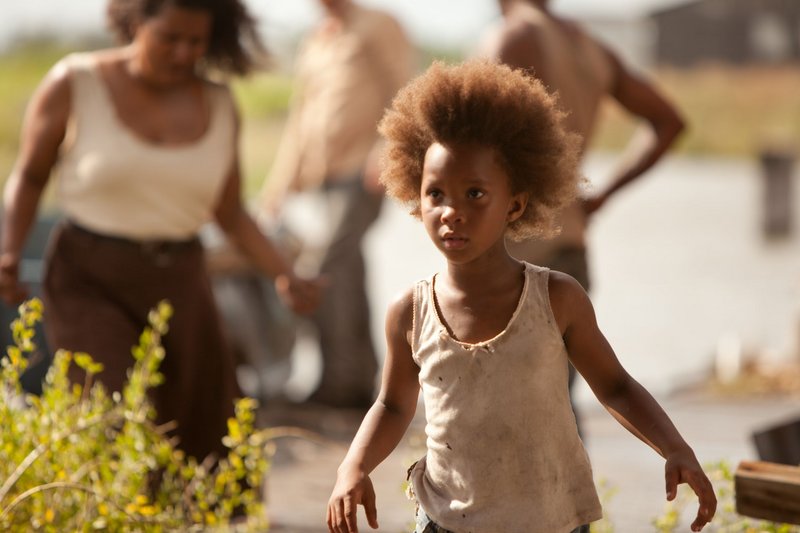“The prettiest place on Earth” is how 6-year-old Hushpuppy (played by Quvenzhane Wallis) thinks of the Bathtub, a muddy, tiny island on the Mississippi Delta that’s just one levee away from being under water.
In the distance, there’s some sort of industrial city, presumably New Orleans, where she sees smokestacks and electrical towers.
At home, the girl is surrounded by wilderness and animals and earth.
Hushpuppy is growing up in extreme poverty, without electricity, among garbage and cardboard boxes and livestock. Her mother is dead; her father Wink (Dwight Henry) is a borderline alcoholic.
But her dad looks after her, and their neighbors are welcoming and communal. You get the sense these people have lived here their entire lives, cut off from the modern world.
But they make do with rubber bands and toothpicks, and they’re happy, and Hushpuppy makes up for her lack of material comforts with her imagination, which is infinite.
“Beasts of the Southern Wild,” which is loosely based on Lucy Alibar’s one-act play “Juicy and Delicious,” sounds grim and distressing. But the movie is just the opposite.
It’s a beautiful, odd tone poem about childhood and innocence, set in a strange but still recognizable world where the polar ice caps are melting, crayfish shacks float down rivers and enormous aurochs, an extinct breed of bison, are sloughing their way toward our tiny, adorable narrator.
First-time director Benh Zeitlin, who made the movie in conjunction with a New Orleans-based collective called Court 13, cast non-professionals in all the roles and shot the film in 16mm, partly to keep costs down and partly because that was the only way to get the project made.
The small budget was a blessing, because it freed the filmmakers to make a movie that doesn’t just ignore the usual rules: It invents its own grammar and style of storytelling.
The plot of “Beasts of the Southern Wild” follows what happens when a Katrina-like storm hits the Bathtub, Hushpuppy’s dad is waylaid by illness, and the little girl is left to fend for herself.
The tone is dreamy and poetic, but also grounded in grit and swamp mud.
Zydeco music and Cajun culture are used for mood and flavor, and the film’s soul belongs to Louisiana.
But the story — like all the best stories about children — could conceivably have been set anywhere, against any backdrop.
“Sometimes you can break things so bad, they can’t be put back together,” Hushpuppy observes after a natural disaster has upended her home.
But in a lyrical, gentle, transporting manner, “Beasts of the Southern Wild” argues that even in the most dire of circumstances, hope finds a way.
Send questions/comments to the editors.



Success. Please wait for the page to reload. If the page does not reload within 5 seconds, please refresh the page.
Enter your email and password to access comments.
Hi, to comment on stories you must . This profile is in addition to your subscription and website login.
Already have a commenting profile? .
Invalid username/password.
Please check your email to confirm and complete your registration.
Only subscribers are eligible to post comments. Please subscribe or login first for digital access. Here’s why.
Use the form below to reset your password. When you've submitted your account email, we will send an email with a reset code.